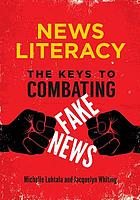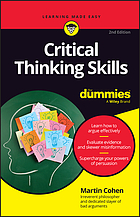In this video, reporters talk about how they gather information in the field, the steps taken to confirm those details, and how they balance stories using multiple sources.
 Navigating Fake News, Alternative Facts, and Misinformation in a Post-Truth World
by
In the current day and age, objective facts have less influence on opinions and decisions than personal emotions and beliefs. Many individuals rely on their social networks to gather information thanks to social media's ability to share information rapidly and over a much greater geographic range. However, this creates an overall false balance as people tend to seek out information that is compatible with their existing views and values. They deliberately seek out "facts" and data that specifically support their conclusions and classify any information that contradicts their beliefs as "false news." Navigating Fake News, Alternative Facts, and Misinformation in a Post-Truth World is a collection of innovative research on human and automated methods to deter the spread of misinformation online, such as legal or policy changes, information literacy workshops, and algorithms that can detect fake news dissemination patterns in social media. While highlighting topics including source credibility, share culture, and media literacy, this book is ideally designed for social media managers, technology and software developers, IT specialists, educators, columnists, writers, editors, journalists, broadcasters, newscasters, researchers, policymakers, and students.
Navigating Fake News, Alternative Facts, and Misinformation in a Post-Truth World
by
In the current day and age, objective facts have less influence on opinions and decisions than personal emotions and beliefs. Many individuals rely on their social networks to gather information thanks to social media's ability to share information rapidly and over a much greater geographic range. However, this creates an overall false balance as people tend to seek out information that is compatible with their existing views and values. They deliberately seek out "facts" and data that specifically support their conclusions and classify any information that contradicts their beliefs as "false news." Navigating Fake News, Alternative Facts, and Misinformation in a Post-Truth World is a collection of innovative research on human and automated methods to deter the spread of misinformation online, such as legal or policy changes, information literacy workshops, and algorithms that can detect fake news dissemination patterns in social media. While highlighting topics including source credibility, share culture, and media literacy, this book is ideally designed for social media managers, technology and software developers, IT specialists, educators, columnists, writers, editors, journalists, broadcasters, newscasters, researchers, policymakers, and students.
 News Literacy: The Keys to Combating Fake News
by
News Literacy: The Keys to Combating Fake News
by
 Critical Thinking Skills for Dummies
by
Includes "instruction and exercises that you can put to work today as you navigate social media and news websites, chat with AI, fact-check your own and others' views, and more. . . . Identify other people's arguments and conclusions--and spot holes in them . . . "
Critical Thinking Skills for Dummies
by
Includes "instruction and exercises that you can put to work today as you navigate social media and news websites, chat with AI, fact-check your own and others' views, and more. . . . Identify other people's arguments and conclusions--and spot holes in them . . . "